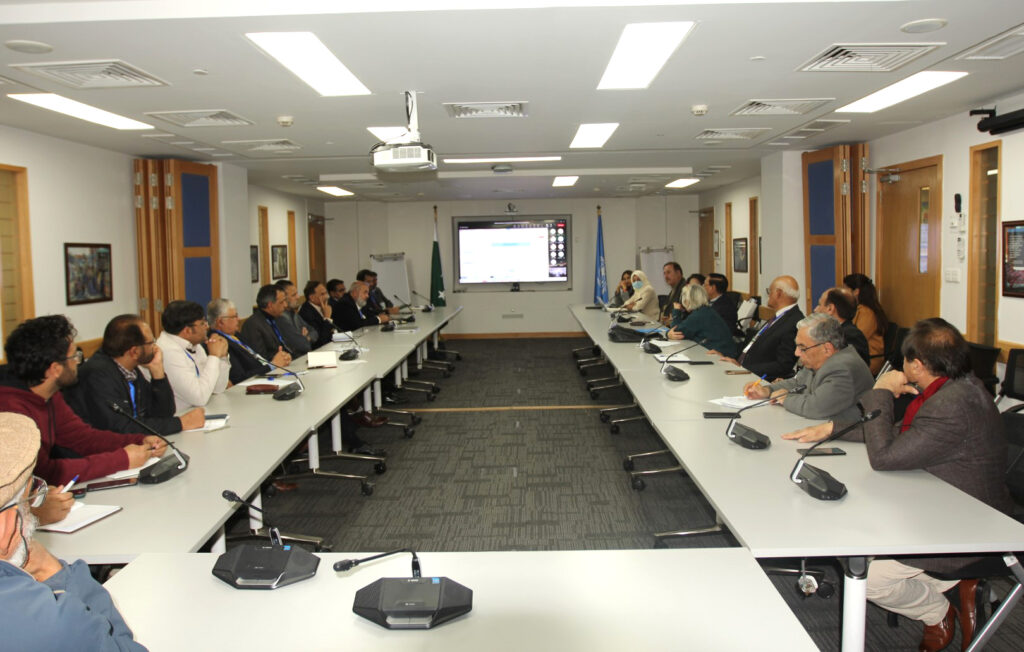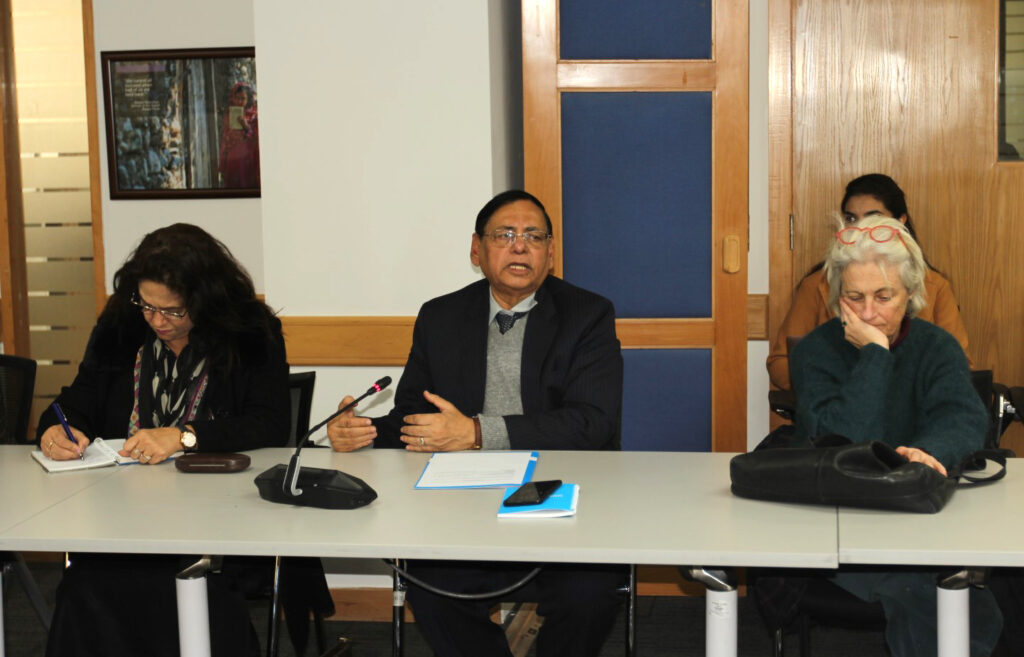Brainstorming Session on Smog, GHG Emissions reduction and Air Quality Issues in Pakistan
 Islamabad, the United Nations Human Settlements Programme (UN-Habitat) organized a brainstorming session to address smog, GHG emissions, and air quality concerns in Pakistan. On 21 November 2023, the AQI reading during the early hours of the day was 345, ranking Lahore as the second worst city in the world for air quality. An AQI above 151 is unhealthy, while above 301 the air is hazardous for breathing. Lahore and other cities in the province of Punjab are under a smog emergency every year during the winter season. The objective was to tackle the pressing issue of declining air quality by identifying effective practical solutions.
Islamabad, the United Nations Human Settlements Programme (UN-Habitat) organized a brainstorming session to address smog, GHG emissions, and air quality concerns in Pakistan. On 21 November 2023, the AQI reading during the early hours of the day was 345, ranking Lahore as the second worst city in the world for air quality. An AQI above 151 is unhealthy, while above 301 the air is hazardous for breathing. Lahore and other cities in the province of Punjab are under a smog emergency every year during the winter season. The objective was to tackle the pressing issue of declining air quality by identifying effective practical solutions.
The session included involvement from various key stakeholders including Ms. Florence Rolle, FAO Representative; Ms. Farzana Altaf Shah, DG EPA; Mr. Ashiq Nawaz, Director EPA; Mr. M. Anwar Chaudhry, Senior Chief, Planning Commission; Mr. Faiz ul Sibtain, Assistant Director PEC; Mr. M Azim Khoso, Director (UA) MoCC; and Brig. Mohammad Ashraf.
 Mr. Jawed Ali Khan, the Habitat Programme Manager at UN-Habitat, extended a warm welcome to the participants, shedding light on the conference’s origins as a response to severe smog occurrences during winters in major Punjab cities. The smog annually affects residents, leading authorities to shut down schools, offices, and parks for extended periods, disrupting daily life. UN-Habitat’s primary goal is to address the intricate issues of deteriorating air quality by creating a collaborative platform for joint efforts, focusing on developing tangible solutions, particularly in energy-efficient building practices.
Mr. Jawed Ali Khan, the Habitat Programme Manager at UN-Habitat, extended a warm welcome to the participants, shedding light on the conference’s origins as a response to severe smog occurrences during winters in major Punjab cities. The smog annually affects residents, leading authorities to shut down schools, offices, and parks for extended periods, disrupting daily life. UN-Habitat’s primary goal is to address the intricate issues of deteriorating air quality by creating a collaborative platform for joint efforts, focusing on developing tangible solutions, particularly in energy-efficient building practices.
A comprehensive presentation on ‘Spatio-Temporal mapping on Smog and its underlying causes using GIS techniques’ was delivered by FAO. The presentation highlighted key contributors to smog, such as transport, industry, power, and agriculture (crop residue burning). FAO emphasized that the transport sector is the primary contributor, accounting for 42% of air pollution in Punjab.
Brig. M. Ashraf introduced the concept of ‘Energized Buildings’ as a strategy to address Pakistan’s energy crisis and combat climate change. This concept involves using solar energy to transfer subsoil temperatures (23 – 24oC) into buildings during the day, maintaining cool temperatures. Additionally, passive energy stored within the buildings is used at night, contributing to energy efficiency. Mr. Ashraf concluded that the benefits include lower emissions, a solution to the energy crisis, and cost-effective heating and cooling throughout the year.
After the presentations, stakeholders engaged in constructive discussions, agreeing on a collaborative approach to address various issues related to deteriorating air quality. The consensus was to work together to formulate energy-efficient practices, promote sustainable urban development, and implement targeted interventions in sectors contributing significantly to air pollution. This collaboration involves fostering cooperation among government bodies, environmental agencies, and the public to ensure tangible improvements in air quality, paving the way for a healthier and sustainable future for the affected regions. It was decided to constitute two technical committees, i. Develop strategy to address the issue of smog by improving air quality; ii. Development of Strategy for addressing the issue of GHG emissions from the building construction sector.
